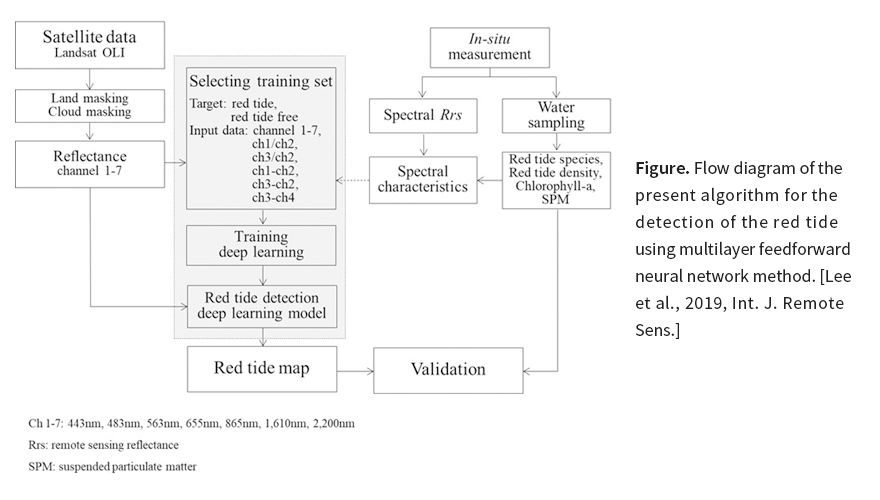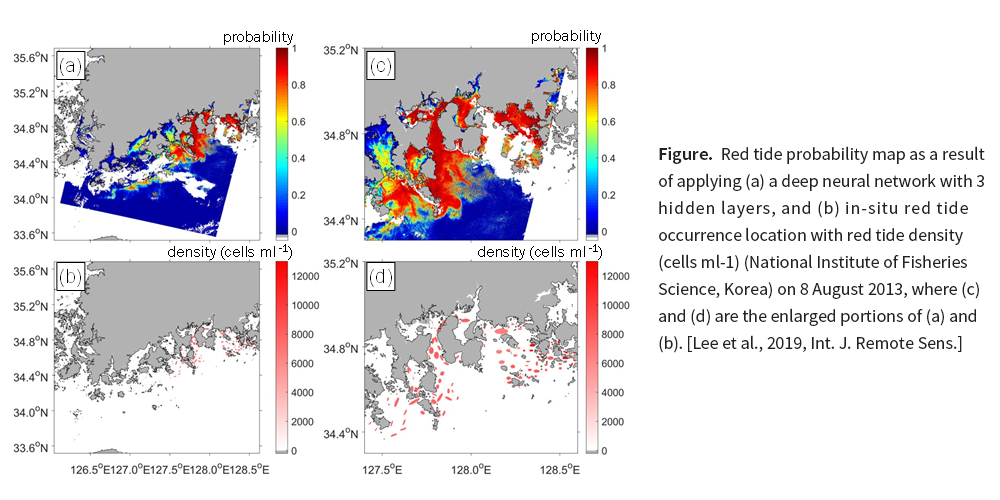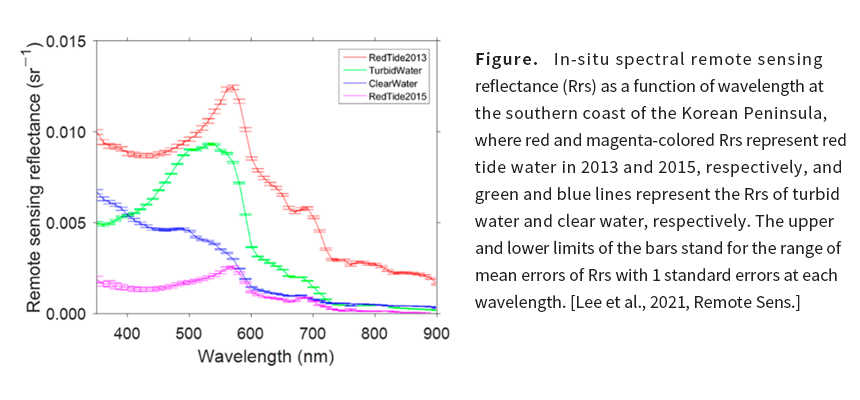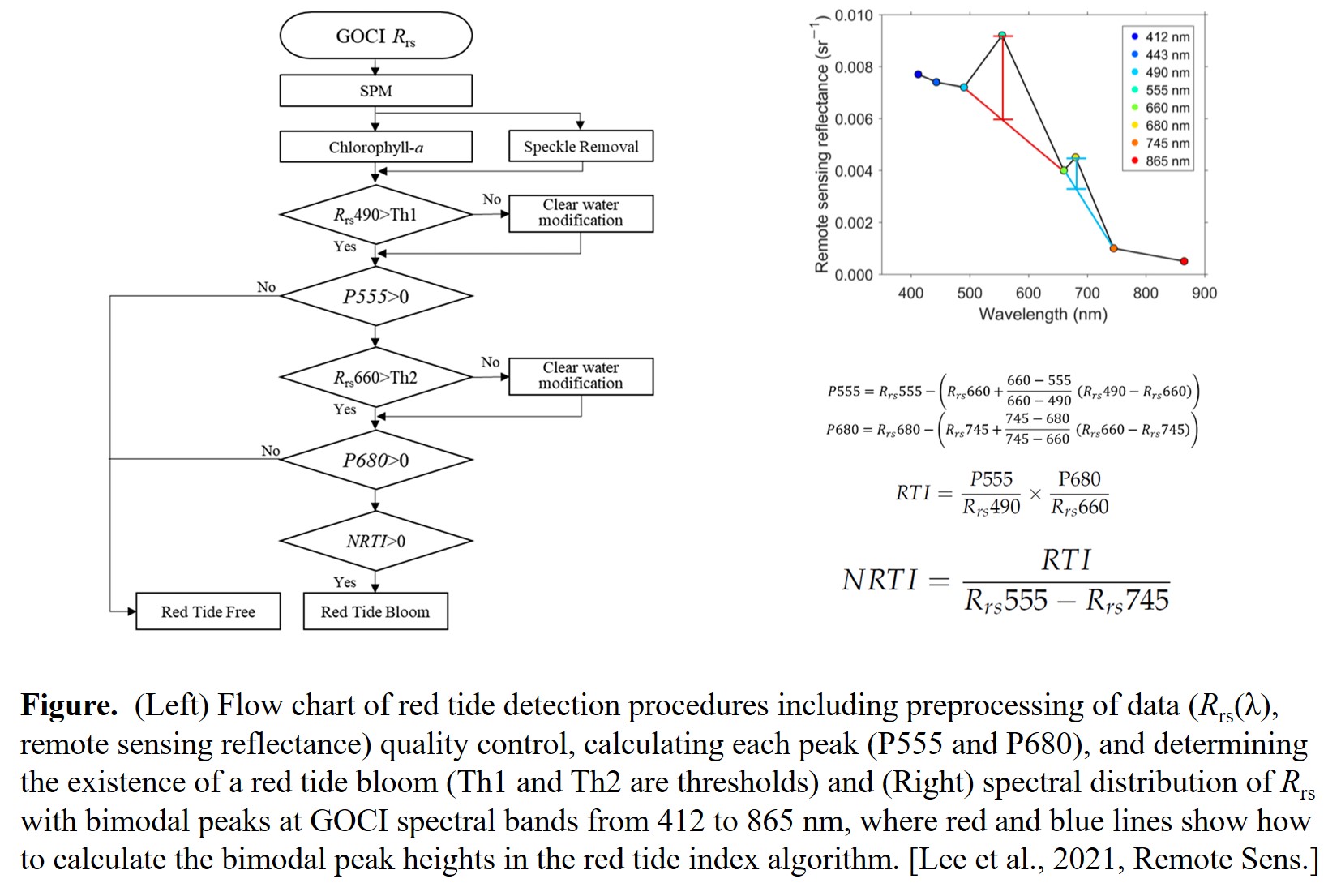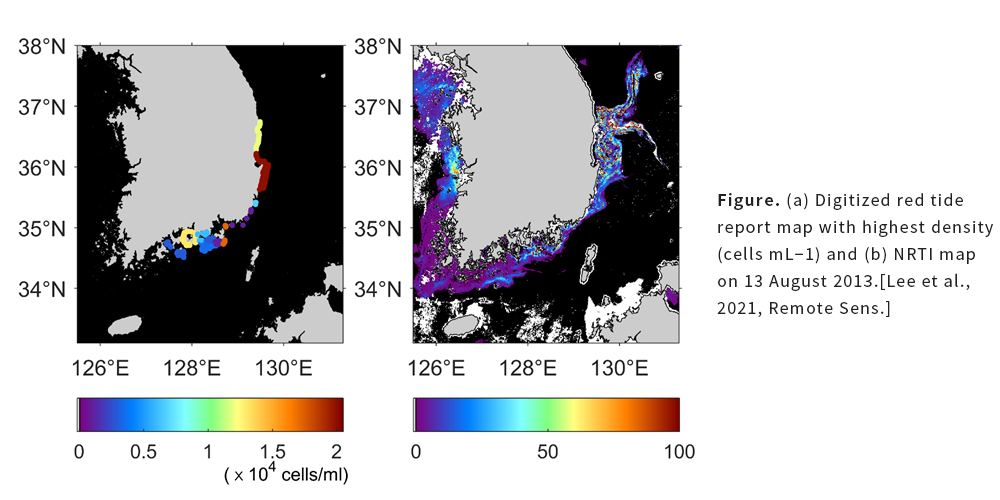Red Tide
- HOME
- Research
- Topic
- Red Tide
 Red tide detection using high-spatial resolution optical satellite imagery
Red tide detection using high-spatial resolution optical satellite imagery
Red tides are one of the most devastating phenomena in the worldwide seas, with harmful effects on coastal environments and fishery on a local scale.
In 2013, an unprecedented explosive red tide events occurred in the southern coastal region of the Korean Peninsula.
Red tide detection scheme was developed based on the deep-learning method using Landsat-8 OLI L2 reflectance values and in-situ red tide
observations. The detection result, with a remarkably high POD value, showed good agreement with the red tide map from in-situ measurements and
suggests MFNN techniques are promising for red tide detection.
 Derivation of Red tide index
Derivation of Red tide index
The seawater shows different spectral shape by its components such as red tide, chlorophyll-a concentration, and SPM. Spectral characteristics of the
red tides demonstrated bimodal peaks over visible wavelengths regardless of the species of the red tide.
Normalized red tide index (NRTI) was proposed based on in-situ spectral measurements that revealed the distinctive shape of the red tide spectra with
bimodal peaks at 550 nm and 680 nm.

